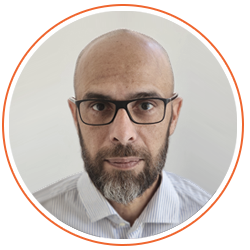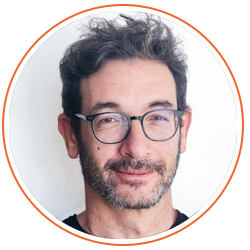
The number of people living with Parkinson’s disease is increasing at an alarming rate. Experts predict a global total of 17.5 million patients by 2040. In fact, among all neurological disorders, the fastest growing one is Parkinson’s disease, whose growth is surpassing that of Alzheimer’s disease.
A diagnosis of Parkinson’s disease is life changing. While the experience of living with Parkinson’s differs among patients, many of the challenges are shared by the majority of people living with the condition.
Parkinson’s disease primarily affects movement and causes symptoms like tremors, stiffness and impaired balance and coordination. Patients require long-term treatment to control symptoms and may eventually have to adapt the way they perform simple everyday tasks.
As the disease progresses, the motoric manifestations typically worsen, frequently leading to difficulty in walking and speaking, as well as emotional and cognitive changes, sleep disturbances, depression, memory issues and fatigue.
Parkinson’s disease is caused by the degeneration of dopamine-producing neurons in a specific area of the brain, the substantia nigra. The exact cause of this neurodegeneration is not fully understood, but a combination of genetic and environmental factors is thought to play a role.
Dopamine is an important neurotransmitter that controls motion, mood, and motivation. The loss of dopamine homeostasis is the main cause of the symptoms seen in Parkinson’s disease.
Despite the vast amount of research on Parkinson’s disease, there has been no major breakthrough in the way Parkinson’s disease is treated since the introduction of Levodopa in the 1960s. Levodopa, which is taken orally, is absorbed into the bloodstream and travels through the circulation to the brain, where it is converted into dopamine.


While Levodopa can greatly improve the quality of life of patients with Parkinson’s disease initially, the effectiveness of the drug eventually wanes. After what is known as the “honeymoon” period, patients usually develop involuntary muscle movements, a condition known as dyskinesia. This phenomenon is a result of daily fluctuations in Levodopa concentrations. As the disease progresses, treatment often requires the use of devices that continuously deliver Levodopa. These devices have a significant toll on patients’ quality of life and are associated with various complications.

A 22-year entrepreneur who founded a Nasdaq-listed company and has invested in
numerous businesses. Currently leads a family office. Holds a B.Sc. in Business Administration and Economics from Tel Aviv University.




Mr. Adam Brian heads Lonza Personalized Medicine, which focuses on developing and bringing to market tools that enable research and development, scale out, and commercialization of patient scale cell therapies, with an emphasis on decentralized and point of care manufacturing. Mr. Brian is a results-oriented leader with extensive experience in the life science and medical device industries. Proven track record of increasing revenue, improving operations, and building and leading high-performing teams.

Dr. Eytan Abraham heads Resilience cell, gene and nucleic acids Franchises. Dr. Abraham holds a Ph.D. in developmental and molecular biology from the University of Maryland Biotechnology Institute, and a post-doctorate in cell-therapy and tissue engineering from the Harvard-MIT Biomedical Engineering Center and Harvard Medical School. Dr. Abraham is an experienced scientist and business leader with expertise in basic and applied biological and cell therapy R&D as well as in management, technology, and commercialization.

An internationally recognized physician-entrepreneur, executive and investor, with over 20 years of clinical and industry healthcare experience. Founder at MedExplore Ventures and of a number of HealthTech/Biotech Companies. Previously, General Partner at a HealthTech PE fund and VP At Eli Lilly.




Dr. Yeal Weiss is currently CEO of Mahzi Therapeutics, a company focused on the development of therapies for ultra-rare genetic neurodevelopmental disorders. Dr. Weiss completed her MD at Hadassah Medical School at the Hebrew University in Jerusalem and her PhD at the Weizmann Institute of Science in Rehovot, Israel. She has over 20 years of industry experience in medical/clinical and business development roles at Genzyme, Merck and Ultragenyx. Dr. Weiss is a member of the NIH driven Bespoke Gene Therapy (BCTG) consortium, ASGCT translational committee, N=1 collaborative and is a 2022 Termeer Fellow. Board member/advisor to ADNP and FOXG1 foundations.

20 years of experience in complementary medicine, former head of the Chinese Medicine Unit at Sheba Hospital. Founder of the Association for Noga (Her Way), An advocate and director in the rare disease world. Holds a BSc. From Brighton University.


Extensive experience in cell and gene therapy. Led the recently approved hemophilia A program at Spark Therapeutics and the earlyphase oncology development at Enlivex Therapeutics. Holding a PhD from the Technion.




10 years of experience in leading R&D projects in the industry, with extensive understanding of gene & cell therapy, holding a PhD from the Weizmann institute.

